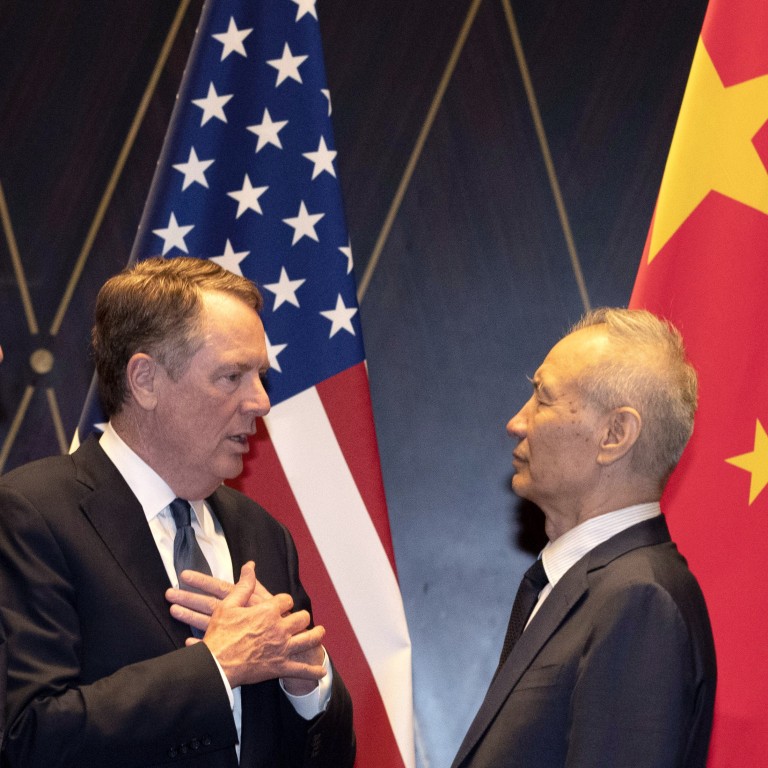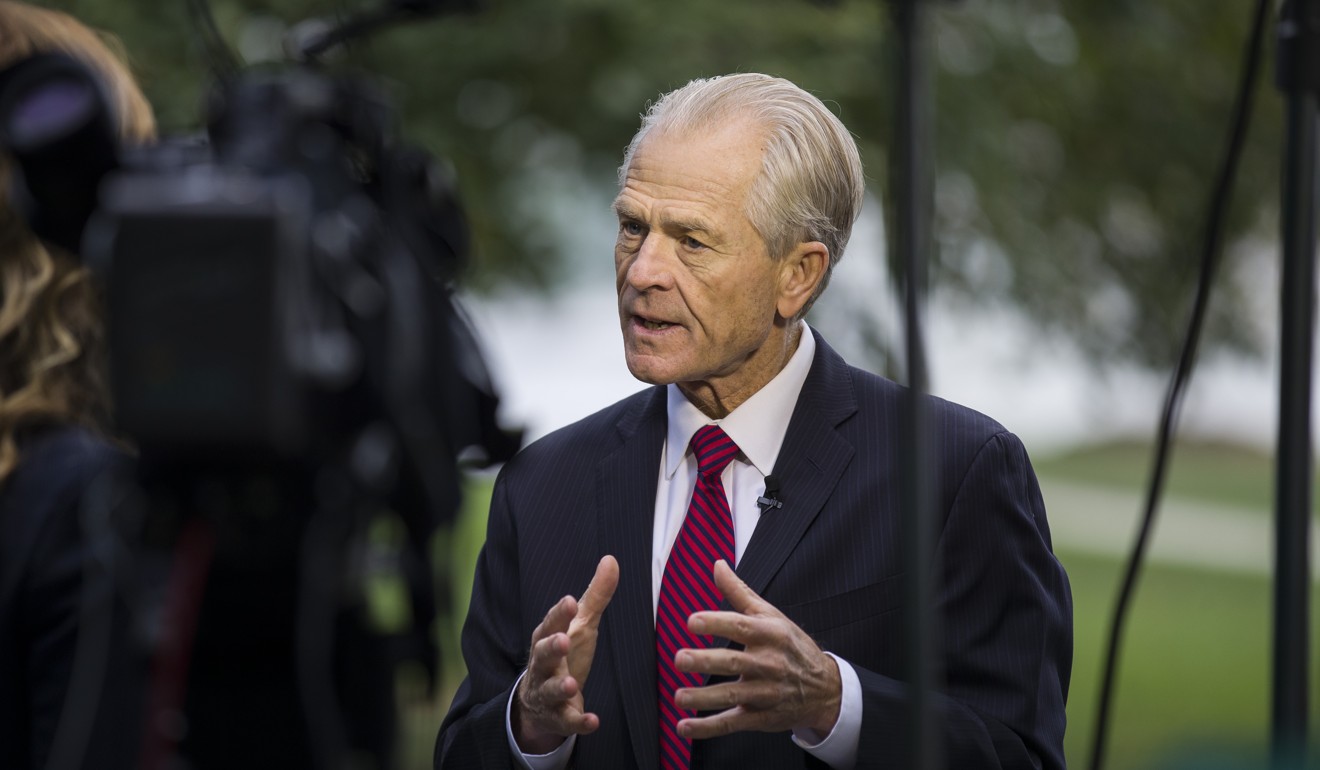
US and China make no progress on key trade issues in two days of deputy-level talks, sources say
- The Chinese delegation refuses to talk about forced technology transfers, a core US grievance in the negotiations, a person with knowledge of the meetings says
- Vice-Premier Liu He and his team may leave earlier than expected
Deputy-level trade talks between the US and China aimed at laying the groundwork for high-level negotiations later this week failed to yield any progress on critical issues, according to two sources with knowledge of the meetings.
During the discussions on Monday and Tuesday in Washington, the Chinese refused to talk about forced technology transfers, one source said, which is a core US grievance regarding China’s economic policies.
Speaking on condition of anonymity, the person said that talks had also skirted the issue of state subsidies, which the Trump administration says give Chinese companies an unfair advantage over international competitors.
Deputy-level negotiators, led on the Chinese side by vice-minister for finance Liao Min, spent the time focusing on only two areas: agricultural purchases and intellectual property protection.
“They have made no progress,” said another source familiar with the talks, adding that the Chinese side had not made headway in persuading US negotiators to consider a freeze on tariff increases, a main priority for Beijing.
Tariffs on US$250 billion of Chinese goods are set to increase from 25 to 30 per cent on Tuesday, while fresh duties of 15 per cent on US$160 billion of largely consumer products will go into effect on December 15.
Liu arrived in the US capital on Tuesday afternoon amid one of the tensest weeks for bilateral relations since the trade war began in July 2018.
NBA commissioner says league will ‘protect employees’ freedom of speech’
Fallout from an NBA team general manager’s message of support for Hong Kong protesters has roiled public opinion on both sides. And earlier this week Washington announced sanctions against Chinese government entities, officials and companies it considers implicated in Beijing’s policies targeting largely Muslim ethnic minority groups in the Xinjiang Uygur autonomous region.
The Chinese government shot back, calling for an immediate reversal in the administration’s actions.
Xinjiang, the trade imbalance and all other points of friction “tend toward increased deterioration in US-China relations on all fronts, and all derive from a sense of China being the US’s greatest strategic challenge”, said Robert Daly, director of the Wilson Centre’s Kissinger Institute on China and the United States.

Against that backdrop, hopes have dwindled for significant progress coming out of this round of trade negotiations. All that was left on the table, said one source close to the talks, was “a mini-deal”.
But if remarks by administration officials are anything to go by, even that may not be an option, with White House trade adviser Peter Navarro telling NPR on Monday that US President Donald Trump had “steely resolve” and that it was “either a big deal or no deal”.
Coming just days before the minister-level talks on Thursday, the administration’s actions against Beijing over Xinjiang prompted questions among some observers about the possibility of strategic timing, particularly since the administration has had sanctions ready to go for months.
US puts visa restrictions on Chinese officials for ‘suppression of Muslims’
It was “rather curious timing”, said a House of Representatives staffer. “They’re not doing the right thing to do the right thing, but for leverage.”
Recounting recent discussions with government officials, another source said that hardliners within the administration had pushed for the sanctions to be announced this week in order to thwart the possibility of incremental progress in trade talks.
“There is an effort underway to make the politics for both the US and China such that going through with the trade deal for either side is – unless it’s a big substantial deal where it throws in the kitchen sink – all but impossible,” said the source, speaking on condition of anonymity to discuss a private conversation with administration officials.
“I mean just imagine being poor Liu He flying in,” the person said. “What the f*** are you supposed to do?”
Additional reporting by Robert Delaney and Mark Magnier


